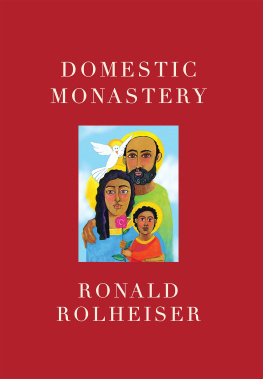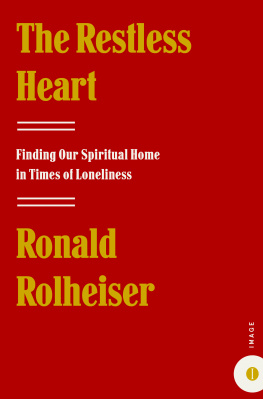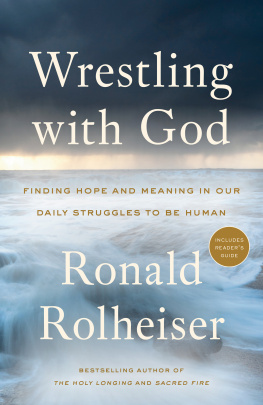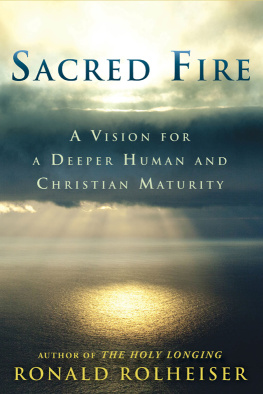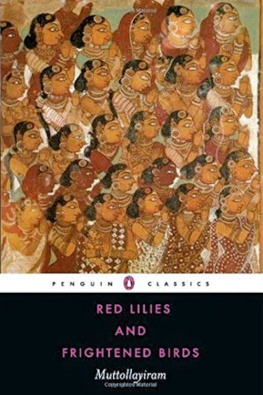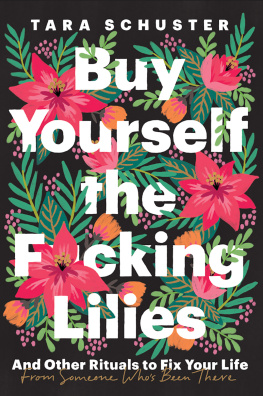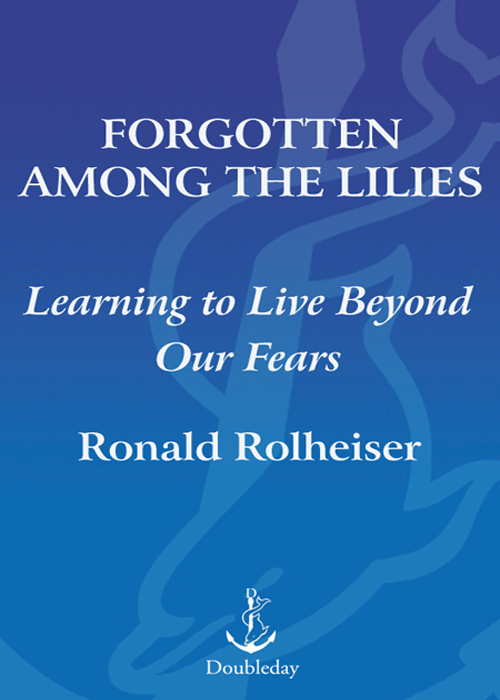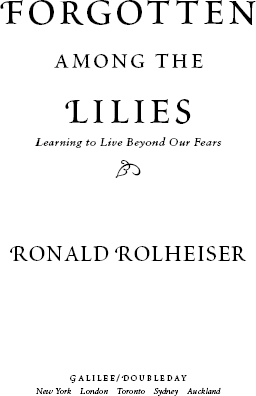I abandoned and forgot myself
.
Leaving my cares
Forgotten among the lilies.
ST. JOHN OF THE CROSS,
The Dark Night of the Soul
ACKNOWLEDGMENTS
MANY PERSONS have contributed to this book. I need to thank especially, however, my family, who always support me; the Oblates of St. Marys province, who always trust me; Newman Theological College in Edmonton, which always gives me a job, an altar, a classroom, a desk and a salary; as well as the Western Catholic Reporter and the Catholic Herald, which originally published many of these reflections. I want too to thank in a special way Delia Smith for initially, and continually, promoting my writings in England. Finally a huge thanks to everyone at Hodder & Stoughton, especially to Juliet Newport, who originally suggested this book and whose hand guided it to completion.
RONALD ROLHEISER, OMI
PREFACE
THOMAS MERTON, journeying during an extended period of solitude, wrote:
It is enough to be, in an ordinary human mode, with ones hunger and sleep, ones cold and warmth, rising and going to bed. Putting on blankets and taking them off, making coffee and then drinking it. Defrosting the refrigerator, reading, meditating, working, praying. I live as my ancestors have lived on this earth, until eventually I die. Amen. There is no need to make an assertion of my life, especially about it as mine, though doubtless it is not somebody elses. I must learn gradually to forget program and artifice. (Quoted in J. H. Griffin, Follow the Ecstasy, Latitudes Press, 1983)
Rarely is life enough for us. Rarely are we able to live restfully the spirit of our own lives. Most often what, where, and how we are living seem small, insignificant, petty and depressingly domestic. We seldom notice our hunger and sleep, cold and warmth. Rarely do we taste the coffee we drink. Instead we go through our days too preoccupied, too compulsive, too driven and too dissatisfied to really be able to be present to and celebrate our own lives. Always, it seems, we are somehow missing out on life.
Added to this restlessness is fear and guilt. We live always in fearabout losing life, losing health, losing loved ones, losing a job, losing securities, losing youth, losing respect and losing ourselves. As well, our lives are always colored by guiltguilt about things we have done wrong, guilt about things we have not done at all, and guilt, at times, simply about being alive, healthy and experiencing lifes pleasures.
For very few of us is human life a simple endeavor. Most of us understand only too clearly what St. Paul meant when he said, For now we see as through a glass, darkly. We live as in an enigma, always partially away from home, longing to understand more fully and to be understood more fully. Slowly we tire of pilgrimage. We want to go home.
This book is a series of reflections which attempt, from many perspectives, to shed some light upon these problems. In essence they attempt to help a pilgrim home.
Margaret Atwood has said: What touches you is what you touch. Accordingly these reflections touch on a whole lot of things, stuff of all kinds: restlessness, inconsummation, innocence and its loss, guilt and reconciliation, patience and chastity, death and loss, Gods unconditional love, passion, friendship, love, sex, romance, community, social problems, human complexity and resiliency, weakness and depression, sin and conversion, the Eucharist, prayer and the obscurity and monasticism of daily life.
The title Forgotten among the Lilies is the final line in John of the Crosss poem The Dark Night of the Soul. In that poem John traces our spiritual journey and shows how it is meant to end up in a freedom that allows us to live beyond the obsessions, restlessness, fears and guilts that rob us of the spirit of our own lives, of the feel of our own cold and warmth, of the taste of our own coffee and of the consolation of God.
This book is for those who struggle to make this life, such as it is, enough. It is for those who ache to be outside themselves, with their headaches and heartaches forgotten among the lilies. It is dedicated to those who struggle with restlessness, guilt and obsessions, who struggle to taste their own coffee and who struggle to feel the consolation of God.

RESTLESSNESS, SPIRIT AND THE MARTYRDOM OF OBSCURITY
The only hope, or else despair
Lies in the choice of pyre or pyre
To be redeemed from fire by fire.
Who then devised the torment? Love.
Love is the unfamiliar Name
Behind the hands that wove
The intolerable shirt of flame,
Which human power cannot remove.
We only live, only suspire
Consumed by either fire or fire.
(T. S. ELIOT, Four Quartets)
Restless Hearts Yearn for God
WE ARE FIRED into life by a madness that comes from our incompleteness. We awake to life tense, aching, erotic, full of sex and restlessness.
This dis-ease is, singularly, the most important force within existence. It is the force for love and we are fundamentally shaped by our loves and deformed by their distortions.
Shakespeare called this our immortal longings and poets, philosophers, and mystics have always recognized that, within it, there is precisely something of immortality.
Religiously, we have surrounded this longing with chastity and mystique.
Ultimately our restless aching was seen as nothing less than the yearning within us for God. Augustines interpretation of this eros was seen as the proper one: You have made us for yourself, Lord, and our hearts are restless until they rest in you.
The longing was understood religiously: Adam, missing his rib, longing for Eve, man and woman, woman and man, longing for a primal wholeness in God and each other. This was high longing, eros as the spark of the divine in us, the fire from the anvil of God imprisoned inside us like a skylark, causing hopeless disquiet!
In the light of such divine restlessness we lived as pilgrims in time, longing for a consummation in a kingdom not fully of this world, caught, in Karl Rahners words, in the torment of the insufficiency of everything attainable, inconsummate, but knowing that here in this life all symphonies remain unfinished.
In such a view, we pursued each other, embraced each other, and loved and made love to each other against the horizon of the infinite, under a high symbolic hedge. Love, romance, sex, and passion were sacred things, surrounded by much chastity and mystique.
Today that hedge is lower, the mystique and the chastity are less. We no longer embrace against the horizon of the infinite and our aches are no longer seen as longing for the transcendent.
Instead, for the most part, we have trivialized this longing, making it mean something much more concrete. The longing is for the good life, for good sex, for good successes, for what everybody else has, for the sweetening of life.
There is little mystique in this. Plato, in his Symposium, tells of his students sitting around telling wonderful stories of the meaning of their longing. Mystics, in their writings, tell of their deep longing for consummation within the body of Christ.
Today we rarely sit around and tell wonderful stories of the meaning of our longing, and, ordinarily, there is little talk of aching for consummation within the body of Christ.




